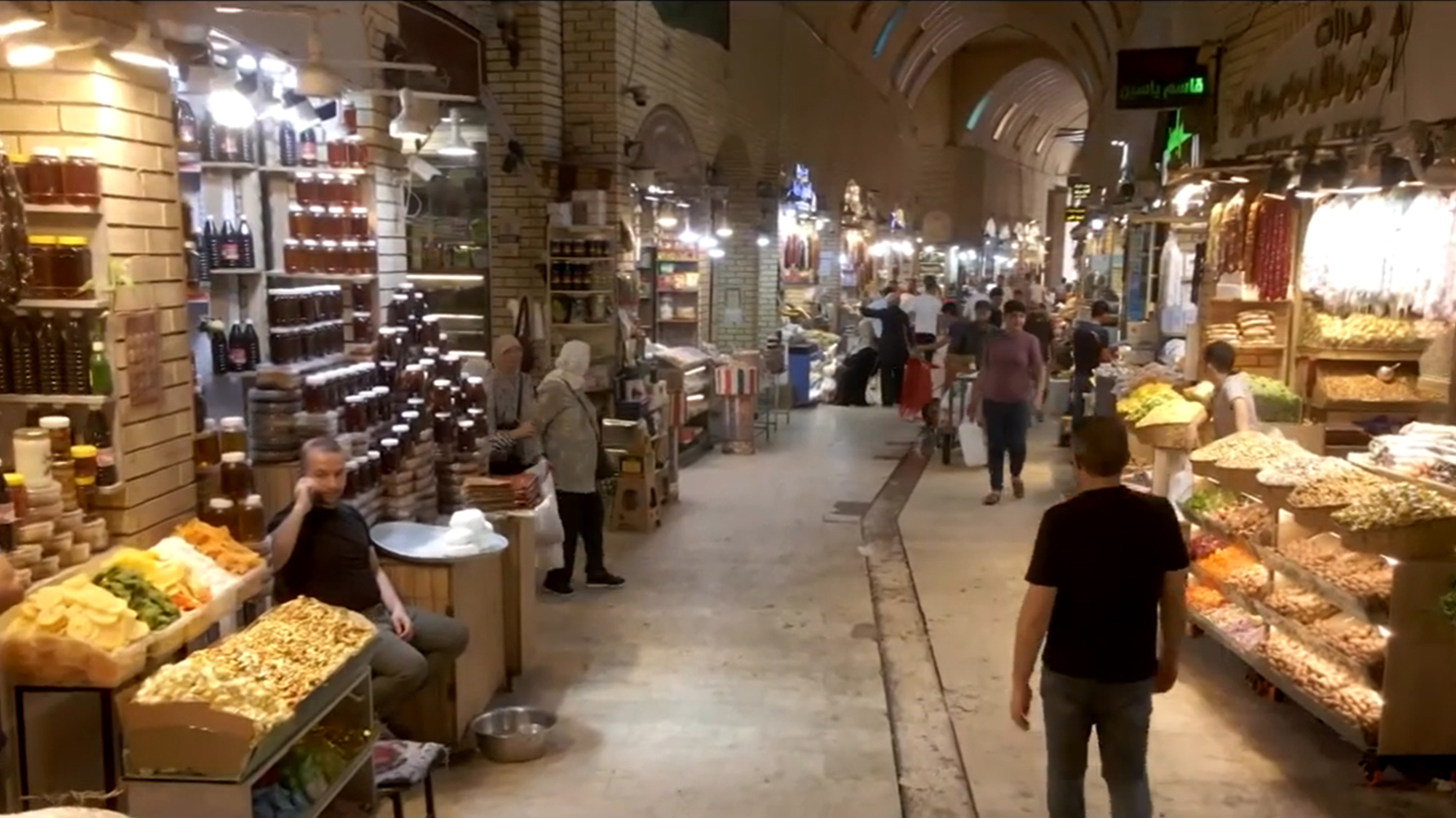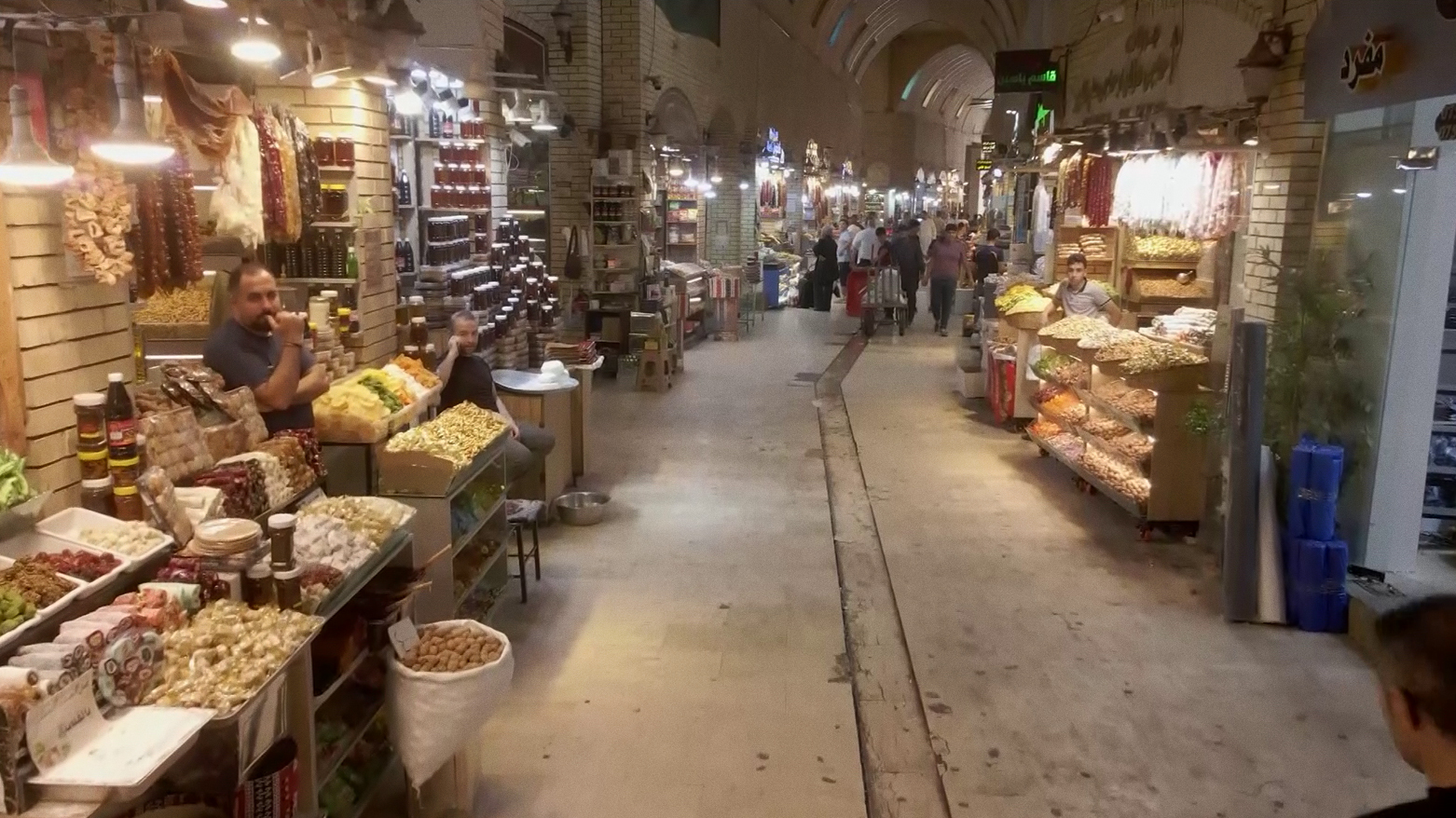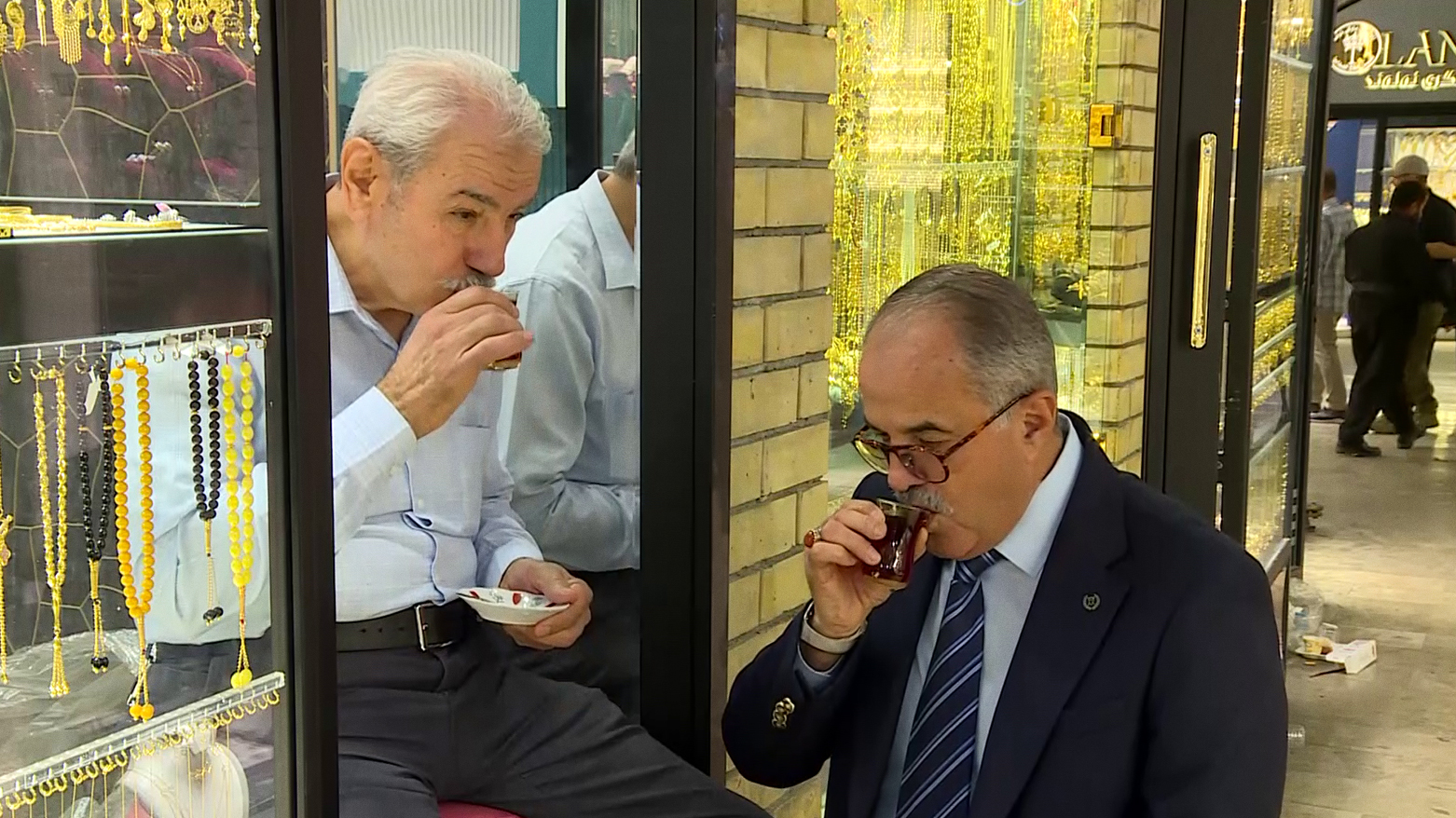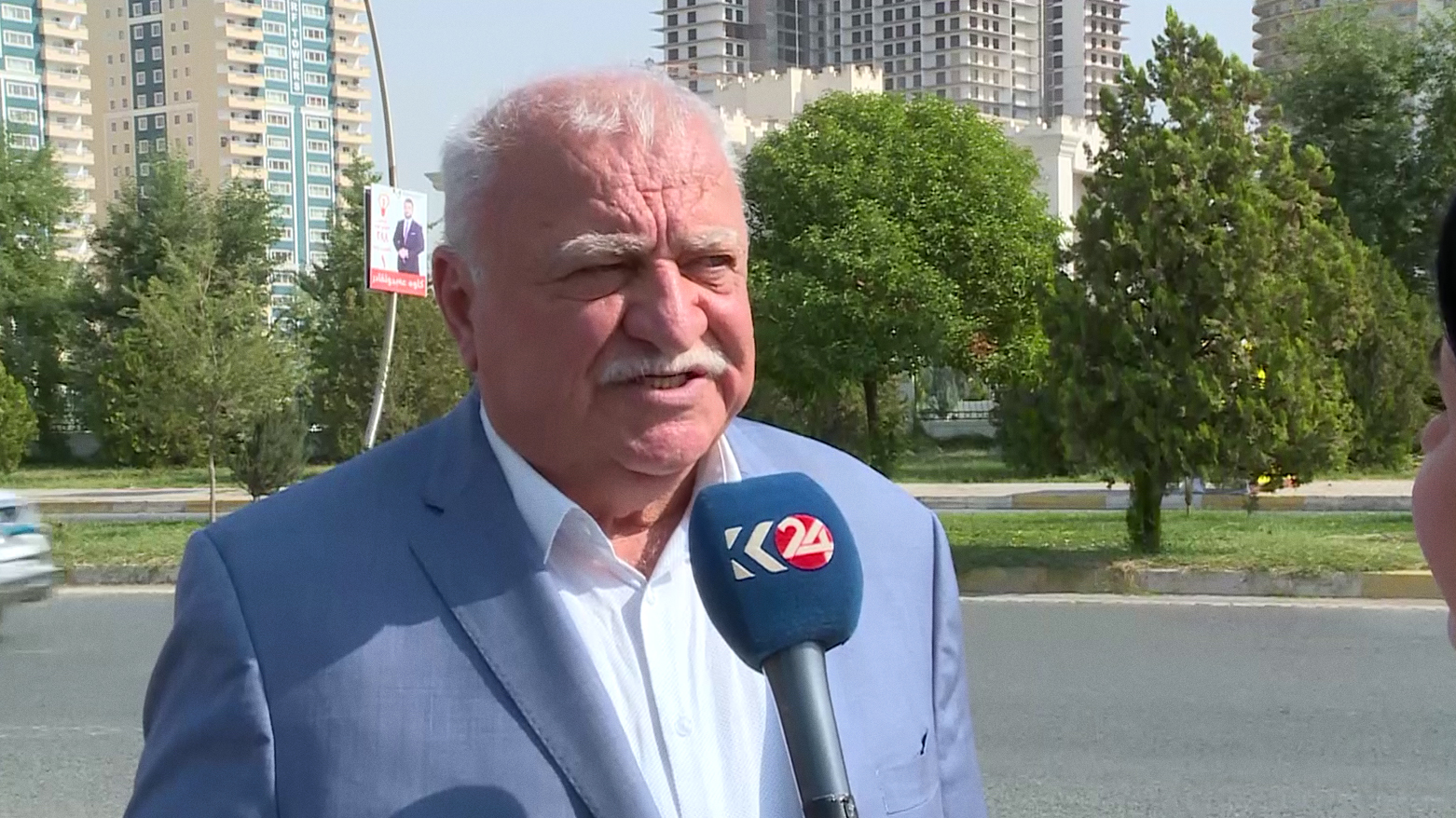Coexistence in Erbil: A Cherished Legacy to be Passed to Future Generations
Erbil's residents, from Kurds and Turkmen to Christians and Muslims, celebrate a deep-rooted coexistence, viewing it as a precious legacy for future generations.

ERBIL (Kurdistan24) – In the bustling, labyrinthine heart of Erbil's historic Qaysari market, amidst the vibrant trade of spices, textiles, and craftsmanship, a story far more valuable than any commodity on display unfolds daily. It is a quiet, unassuming narrative of profound friendship and deep-seated brotherhood, exemplified by men like Mam Azad Qawachi, a Turkmen, and Mam Ghazi Ahmed, a Kurd, whose lives are woven together by decades of shared business, neighborly affection, and even family ties.
Their story, and countless others like it, is the living embodiment of a culture of coexistence that defines the capital of the Kurdistan Region, a multi-ethnic, multi-religious tapestry that its residents cherish as the very foundation of their progress and a precious legacy they are determined to pass on to future generations.
This culture of mutual respect and shared identity is not a recent development or a political slogan; it is a deeply ingrained social reality, a lived experience that permeates the city's ancient alleyways and modern boulevards alike.
The Qaysari, for decades, has been a microcosm of this harmony, a place where Kurds and Turkmen have worked side-by-side, their businesses and lives intertwined.
It is here that Mam Azad Qawachi, a retired teacher of Turkmen ethnicity, spends his days, visiting the shopkeepers and businessmen who are not just colleagues but lifelong friends.

The Heartbeat of Harmony
Mam Azad's relationship with Mam Ghazi, a Kurd, transcends simple friendship; it is a bond solidified by family connections.
This daily interaction has been so natural and seamless that Mam Ghazi has become fluent in the Turkmen language. Standing together, they articulate a shared philosophy that resonates throughout the city.
"We are brothers and our hearts are one and nothing can separate us," they affirm, adding that they "consider the coexistence of nations as progress."
Mam Azad, speaking to Kurdistan24, emphasized the organic and colorblind nature of social relations in the capital.
"In Erbil, there has never been a distinction between the components," he stated. "No one has said this is a Kurd, this is a Turkmen, this is a Jew or a Christian. Everyone lives together like brothers and there has been and is intermarriage between us."
His friend Mam Ghazi echoed this sentiment, painting a picture of decades of untroubled camaraderie.
"For decades, Mam Azad and I have been neighbors in our homes and businesses, we have never had any problems or issues," he said.
He was quick to broaden the scope of this harmony beyond just the Kurdish-Turkmen relationship. "Not only with Turkmen, we also have interactions and friendships with Christians and we live together without discrimination."

A City of Symbols and Shared Destiny
This multi-colored, multi-ethnic, and multi-religious character has earned Erbil a distinguished reputation in international circles as a beacon of tolerance.
The city's very landscape tells this story. Mamosta (a Kurdish word that means 'teacher', but it is an endearment term used to show respect), Petros Nabat, a Christian elder now over seventy years old, points to a powerful and visible symbol of this reality: the presence of a mosque and a church standing directly opposite each other on one of Erbil's streets.
For him, this is not a mere coincidence of urban planning but a reflection of the richness of a culture where faiths do not just tolerate each other, but exist in close and respectful proximity.
He believes that the lives of all communities in Kurdistan are inextricably intertwined, a shared destiny that has been powerfully articulated by the region's leadership.
"We are proud of this coexistence," Mamosta Petros declared.
He specifically referenced a foundational promise made by President Masoud Barzani: "What His Excellency President Barzani said, that our life and death are together; for us, it has a great meaning and the effect of that statement has become clearly visible and we all feel it."
This high-level political commitment, he feels, is not just rhetoric but a principle that has tangibly shaped the peaceful reality they all enjoy.

A Sanctuary in a Troubled Land
This deeply ingrained culture of mutual respect and the deliberate policy of protection that underpins it stand in stark and tragic contrast to the reality faced by minority communities in other parts of Iraq.
The Kurdistan Region has, over the past two decades, firmly established itself as a secure and welcoming safe haven for the country's beleaguered Christian community, who have been driven from their ancestral homes in the central and southern provinces by a relentless climate of fear, violence, and state neglect.
While ancient Christian neighborhoods in historic heartlands like Mosul now stand as hauntingly empty monuments to a vibrant past, in the provinces of the Kurdistan Region, Christian life is not merely surviving; it is thriving.
Duhok province, now home to more than 50,000 Christians and nearly 100 churches, is a clear example. Here, the community is free to practice its faith and celebrate its traditions without fear.
Nariman Wahid, one of the tens of thousands of Christians who have found refuge in the region, summed up the profound difference this security makes. “When going to church and school, a sense of safety prevails,” he said. “Kurdistan provides security and peace.”
Crucially, like the residents of Erbil's Qaysari, Nariman speaks not just of security, but of a genuine social harmony where the lines between different groups have blurred into a shared sense of community.
"With other components such as Yazidis and Muslims, we are together in happiness and sorrow, and there is no difference between them," he explained.
This stands in harrowing contrast to the fate of Mosul's Christian quarter. Saadullah Baisoon, one of the few remaining residents in an area that once pulsed with the life of more than 10,000 Christians, serves as a living witness to a tragic exodus.
"This area was all Christian, its history goes back more than 2,000 years," he lamented.
The genocidal campaign of ISIS was the catalyst, but the failure of the Iraqi federal government to provide credible, lasting security after the group's defeat has prevented any meaningful return.
"Due to the lack of security and trust in the security forces, they are not willing to return," Baisoon stated, a damning indictment of a state that failed to protect its most vulnerable citizens.
A Deliberate Policy of Partnership
The Kurdistan Region's role as a sanctuary is the result of a deliberate and long-standing policy, a fact recognized by international observers.
Zalmay Khalilzad, a veteran American diplomat and former U.S. ambassador to Iraq, recently praised the "uniquely impressive record of positive interfaith relations" of the Kurdish leadership.
He highlighted the extraordinary sacrifice made during the height of the ISIS crisis, when the Kurdistan Regional Government (KRG) "had to postpone the opening of their school year because they needed the classrooms to house Christians fleeing from violent persecution."
This act, he noted, showed the world what true tolerance "actually means."
This policy of a shared destiny, as articulated by President Barzani, extends beyond providing emergency shelter to the active support of religious and cultural life. A powerful and recent example was the inauguration of the magnificent new Umm al-Nour (Mother of Light) Cathedral in the Christian enclave of Ankawa, funded entirely by the KRG.
In a single day that powerfully symbolized the government's even-handed approach, Prime Minister Masrour Barzani, just hours after opening the new cathedral, also laid the foundation stone for an expanded Al-Azhar Institute in Erbil, the only Iraqi branch of the world-renowned center of moderate Islamic learning.
As the Prime Minister stated, these actions are "evidence and a sign of the diversity of Kurdistan's society and the importance the Kurdistan Regional Government places on all religions and on the further deepening of peaceful coexistence."
For the residents of Erbil, this policy is simply the official reflection of their daily reality. What the diverse nations and religions of the city consistently emphasize is the critical importance of ensuring this precious social fabric is not taken for granted.
Their shared goal is clear: this unique culture of peaceful coexistence must be consciously deepened, protected, and, above all, passed on as a living legacy to the generations who will follow, ensuring that the brotherhood found in the heart of the Qaysari market continues to define the heart of Kurdistan for centuries to come.
Kurdistan24's correspondent Hero Mewloodi contributed to this report.